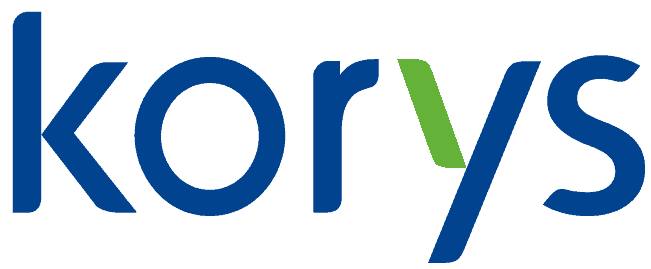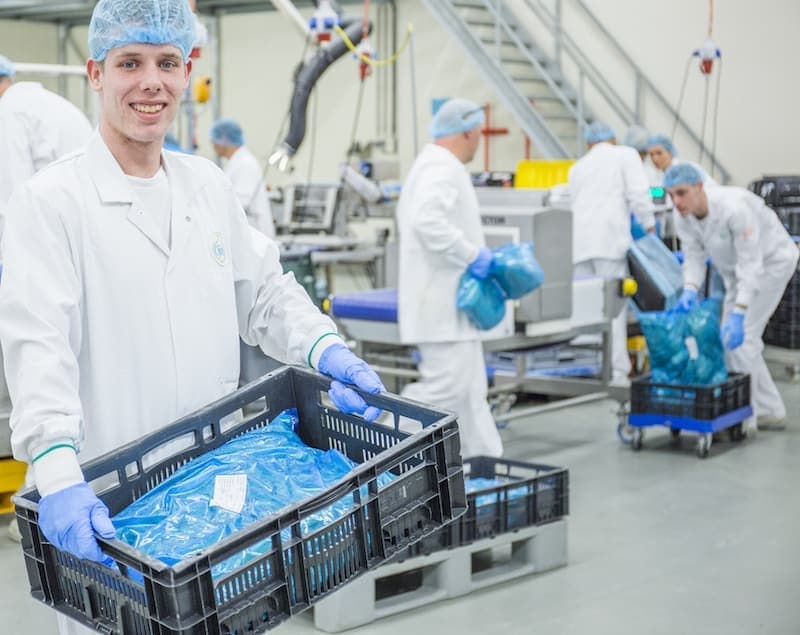‘Family-based Korys and international investor keep each other in balance’
In 2018, almost half of Belgians ate less meat than the year before. In fact, 7% of Belgians ate no meat at all, with 9% eating vegetarian at least three times a week. It’s no wonder the market for meat substitutes is booming. For example, the Hollywood hype ‘Beyond Meat’ produces mediagenic vegetable-based burgers. Far from the cameras, the Dutch company Ojah is opening just as many eyes. Managing director Frank Giezen is dreaming of nothing less than a global veggie revolution.
Ochten – a village the size of a handkerchief in the Dutch province of Gelderland – is home to a global player. In this picturesque little location, Ojah has created the brands Beeter and Plenti. Both make high-value meat-substitute products. In 2009, founders Frank Giezen, Jeroen Willemsen and Wouter Jansen developed the High Moisture Extrusion technique.
‘Under high pressure and temperature, we mixed water with vegetable protein flour,’ explains Frank. ‘Forget the tofu or the refined blocks of spices that call themselves hamburgers. Through a combination of friction and shearing, we make a product that, in terms of its tenderness, form and texture, is indistinguishable from actual meat. When I tried it for the first time, the now legendary words came to my lips: “It’s just like chicken!”’ (Laughs)


The meat and potatoes of a sustainable philosophy
Ojah goes to all lengths to limit the ecological footprint of its production processes. This is perfect for a sustainable investor like Korys: ‘There’s nothing more sustainable than encouraging people to eat vegetable proteins instead of animals. The production process demands notably fewer raw materials. Plus, our soya is from European sources, we avoid pesticides and even our company premises use sustainable furnishings.’


Two investors in one year
Ojah and Korys are two peas in a pod. Not just because of the sustainable character of the companies, but also because they have written a striking story of growth: ‘2017 was a pivotal moment for Ojah. The time was ripe for us to make the move from start-up to scale-up. We found the right partner in Korys. Because they invest in a lot of companies that are in the same phase, they are the ideal sparring partner. Without blinking, we swapped fragmented shareholders and two venture capitalists for a stable shareholder with a long-term vision.’
Another exceptional opportunity appeared immediately after this change. The Irish Kerry Group – world leader in ingredients for the food industry – showed interest in the miracle of growth from the Netherlands. A few months later, the joint venture was solidly established. ‘With Korys and Kerry Group, we had the best of both worlds,’ says Frank. ‘As a multinational, Kerry Group has access to a global commercial network and a mountain of scientific knowledge. Korys is a family company through and through. They aren’t pumping money into Ojah just to sell for a profit as soon as possible. As a flexible, human-sized entrepreneurial partner, Korys is complementary to a strongly structured multinational like Kerry Group.’
The time was ripe for us to make the move from start-up to scale-up.
Top-class environmentalists
The click between Ojah and Korys was clear. Both partners follow a like-minded business philosophy: ‘It may seem strange coming from a Dutchman, but Ojah does business in a very Belgian way: we are an ambitious and social company that attaches a lot of importance to personal contact and building relations. I recognise these character traits in Dries Crevits and Thomas De Kempeneer, the Korys representatives on our Board of Directors. I speak at least once a week with Dries. Not for checking up or to tune an agenda, but to share knowledge.’
Financially and strategically, Korys instils a great deal of confidence. Their financial background helps with the drafting and realisation of business plans. Plus, Korys sees the big picture.
From that shared enthusiasm, Ojah and Korys are striving for a global veggie revolution. In explosive growth processes like this, Korys provided much-needed peace according to Frank: ‘Financially and strategically, Korys instils a great deal of confidence. Their financial background helps with the drafting and realisation of business plans. Plus, Korys sees the big picture. While we need to focus on production details, Korys examines the entire chain. They have a broad international network that ranges from raw material suppliers to retailers. As such, Korys helped us, for example, with taking our first steps in France.’
Dries’s vision
Under the Conscious Consumer name, Korys invests in brands for modern consumer products. The motivating philosophy behind it? Today’s consumer is consciously aware and invested in their health, thinking about the impact on the environment, greatly appreciates ease of use, and craves experience. On the basis of these consumer trends, Korys targets the entire chain: from sustainable ingredients and raw materials to consumer products and innovative retail.
Ojah is a powerful example of this vision. ‘Ojah is an international-sounding name that you spontaneously associate with soya. But in Dutch, it also refers to the famous ‘Oh yeah experience’, a wink to the ‘aha experience’ or ‘eureka effect’,’ says Dries Crevits. ‘That was exactly my feeling when I met the people from Ojah for the first time. Their story came to my attention during a start-up congress on nutrition. By and by, we came to see that Ojah was the driving force behind a lot of fundamental innovations.’
The first contacts clearly ran in a friendly atmosphere: ‘Ojah saw that we had an understanding of business, but there was also a personal match. Which is logical as our organisations both stand for integrity, sustainability and ambition.’
Ambition indeed. No wonder that the sales figures are accelerating. Ojah has grown 50% per year since it was established. And that’s all thanks to a clear strategy: ‘Ojah isn’t a brand lying on the supermarket shelves. To grow quickly, these food specialists supply ingredients to the largest meat-substitute companies in The Netherlands and beyond. Because closing a deal with the ‘winner’ in every country demands less than it would for an own brand to find its place in the market.’
Find out how this investment vision responds to today’s ‘Conscious Consumer’



